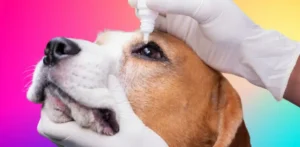Introduction
The Merle Poodle stands out as a captivating and sometimes controversial variation of the much-adored Poodle breed. Renowned for its stunning coat pattern and unique eye colours, the Merle Poodle is both admired for its beauty and criticized for the ethical concerns tied to its breeding. While some see these dogs as a glamorous addition to the Poodle family, others worry about their health and the genetics behind their distinctive appearance. This guide explores the allure, controversies, and practical considerations of owning a Merle Poodle, providing the information you need to make an informed decision.
What Is a Merle Poodle?
A Merle Poodle is not a naturally occurring variety within the Poodle breed. Its signature marbled coat, featuring patches of diluted colour against a solid background, arises from the merle gene, which affects pigmentation in the coat, eyes, and sometimes even skin.
This gene is common in other breeds like Australian Shepherds, Dachshunds, and Border Collies. However, because Poodles do not naturally carry the merle gene, introducing it into the breed requires crossbreeding. Once established, breeders may continue to pair Merle Poodles with other Poodles to produce the desired pattern while maintaining the breed’s traits.
Merle Poodles come in all sizes—standard, miniature, and toy—making them suitable for a variety of households. Their coat colours can range from blue merle (grey and black patches) to red merle (red and cream swirls) and even chocolate merle (dark brown and light brown combinations). Some dogs possess striking blue or partially blue eyes, which enhance their unique and captivating appearance.
The Allure of the Merle Poodle
Merle Poodles are undeniably eye-catching. Their coats, often described as works of art, set them apart from traditional solid-coloured Poodles. This uniqueness is one of the main reasons for their popularity among dog lovers.
Beyond their striking appearance, Merle Poodles possess all the characteristics that make Poodles one of the world’s most beloved breeds. They are smart, easy to train, loving, and suitable for people with allergies. These qualities make them excellent companions for families, individuals, and even those with allergies.
Their versatility in size and temperament also makes them adaptable to different living environments, from apartments to spacious homes with yards. Whether you’re looking for a playful toy Poodle or a regal standard Poodle, the Merle variety offers a little extra flair.
The Controversy Surrounding Merle Poodles
Despite their beauty, Merle Poodles are not without controversy. The debate centres on their genetic origins, health risks, and ethical considerations surrounding their breeding.
Ethical Concerns
The merle gene does not naturally occur in Poodles. Introducing this gene typically involves crossbreeding Poodles with merle-coated breeds, such as Australian Shepherds. Critics argue that this compromises the integrity of the purebred Poodle line.
Additionally, because crossbreeding introduces new genetic variables, there is a risk of creating dogs with unpredictable temperaments or physical traits. This unpredictability can challenge owners who expect the standard characteristics of a Poodle.
Health Risks
The merle gene, while visually stunning, can pose significant health risks. Dogs with two copies of the merle gene, often referred to as “double merle,” face heightened risks of specific health issues. Double merle dogs are at a heightened risk of congenital defects, including:
- Blindness
- Deafness
- Neurological Issues
To avoid these risks, reputable breeders only pair merle dogs with non-merle dogs, ensuring offspring inherit only one copy of the gene. Not all breeders follow these recommended practices, which can give rise to ethical issues and health complications.
Choosing a Merle Poodle: What You Need to Know

If you’ve fallen in love with the idea of owning a Merle Poodle, it’s crucial to approach the process with caution and diligence. Here are some tips to ensure you bring home a healthy and ethically bred dog:
1.Research Breeders Thoroughly
Select breeders who openly share details about their breeding practices. A reputable breeder will provide genetic testing results for both parent dogs and explain how they ensure healthy, ethically bred litters.
2.Ask About Health Testing
Beyond standard Poodle health screenings (e.g., for hip dysplasia, eye disorders, and heart conditions), ensure the breeder tests for issues related to the merle gene.
3.Avoid Double Merles
Confirm that neither parent dog carries two copies of the merle gene. Responsible breeders will have documentation proving this.
4.Consider Adoption
While rarer, Merle Poodles do occasionally end up in rescues. Adopting a dog in need can be a rewarding alternative to purchasing from a breeder.
Caring for a Merle Poodle
Once you’ve welcomed a Merle Poodle into your home, proper care is essential to ensure their health and happiness.
Grooming
Like all Poodles, Merle Poodles have dense, curly coats that require regular maintenance. Without consistent grooming, their hair can become matted, leading to discomfort and potential skin issues. A professional grooming session every 4-6 weeks, coupled with regular brushing at home, is recommended.
Training
Poodles are among the most intelligent dog breeds, and Merle Poodles are no exception. They thrive in obedience training, show impressive agility, and are capable of mastering even complex tricks. Early socialization and positive reinforcement training methods are key to raising a well-mannered dog.
Health Monitoring
Because of the potential health risks associated with the merle gene, regular veterinary check-ups are vital. Keep an eye out for signs of hearing or vision issues, particularly as your dog ages.
The Future of the Merle Poodle

As the popularity of Merle Poodles grows, so does the need for responsible breeding practices. Increased awareness and education among breeders and buyers can help minimize the risks associated with the Merle gene while preserving the breed’s unique appeal.
Organizations like the American Kennel Club (AKC) currently do not recognize Merle Poodles as an official colour, which further fuels the debate. However, with growing demand and advocacy, this stance may evolve in the future.
Final Thoughts
The Merle Poodle is a mesmerizing combination of beauty and complexity. For those enchanted by its striking appearance and loyal nature, it can be a wonderful companion. However, it’s essential to approach ownership responsibly by understanding the breed’s unique challenges and selecting a trustworthy breeder.
While some may see the Merle Poodle as a controversial trend, others celebrate it as a dazzling evolution of the classic Poodle. Whichever side you fall on, one thing is clear: the Merle Poodle leaves a lasting impression, both for its beauty and the important conversations it sparks about ethical breeding and canine welfare.
By making informed choices and prioritizing the health and happiness of your pet, you can ensure that your Merle Poodle becomes a cherished member of your family for years to come.


















